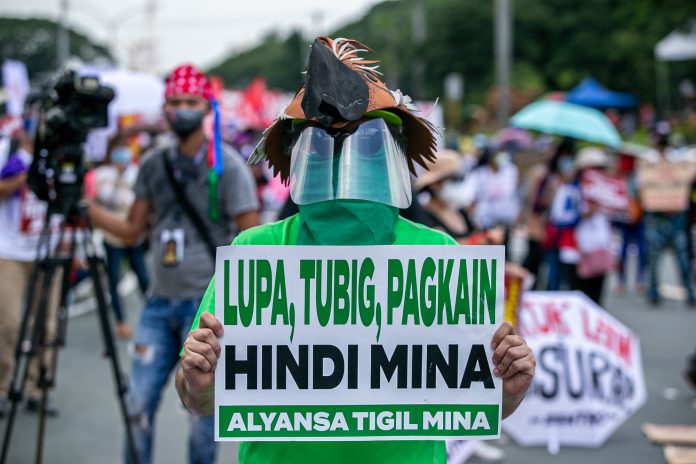Environmental activist groups lambasted government claims that revenues from mining and other destructive extractions would help the Philippine economy recover.
Jaybee Garganera, coordinator of Alyansa Tigil Mina (Alliance to Stop Mining), said there is “no historical or statistical basis that mining can provide a significant number of jobs, investment or tax payments.”
“The recommendation to include mining and river-dredging as part of the economic stimulus program of the government is a backward move,” said Garganera.
Early this month, the country’s Environment department confirmed that some mining firms that were previously closed or suspended would be allowed to resume operation.
In a television interview, a government official said the reopening of those mining operations could help in the country’s economic recovery from the impacts of the pandemic.
“We need [revenues from] mining because of our situation…. We know that we can get large revenues from these mining operations,” said Environment Undersecretary Benny Antiporda.
The mining industry in the country contributes an average of 0.80 percent to the total gross domestic product while 0.50 percent in terms of employment.
That is despite the fact that the Philippines’ mineral resources have an estimated value of about US$1.4 trillion.
From 2016 to 2019, the total gross production value in mining is about US$12.9 billion.
Leon Dulce, national coordinator of Kalikasan People’s Network for the Environment, said the country “does not benefit” from large-scale mining operations.
“Profit and the minerals that these huge companies extract from our lands go directly to foreign countries,” he said.
“The tax that the government collects from these companies is very small compared to the actual value that the State should receive,” he added.
Father Angel Cortez of the Ecological Justice Interfaith Movement said dependence on revenues from extractive industries “won’t help the country instead it will cause more damage.”
“We will not get good results from this proposal. The tax that the government gets from extractive industries cannot compensate its impacts to the people and communities,” the priest said.
Undersecretary Antiporda clarified that the suspended mining companies made their appeal “even before the coronavirus pandemic.”
“We are not allowing these companies to reopen just for the sake of getting revenues to help our economy to recover in this time of the pandemic,” Antiporda told LiCAS.news.
The official noted that out of more than 30 mining companies that filed a petition, “only 13 went to the Department of Environment, the rest went directly to the Office of the President.”
He said that out of the 13 companies that they processed since 2018, only five were approved to resume operations, four were permanently closed, while others are still pending.
“The decision to allow them to resume came after a strict environmental audit and after these companies performed corrective measures on their deficiencies,” said Antiporda.
The five companies that were allowed to reopen are the Berong Nickel Corporation, Carrascal Nickel Corporation, Emir Mineral Resources Corporation, Strong Built Mining Development Corporation, and Zambales Diversified Metals Corporation.









